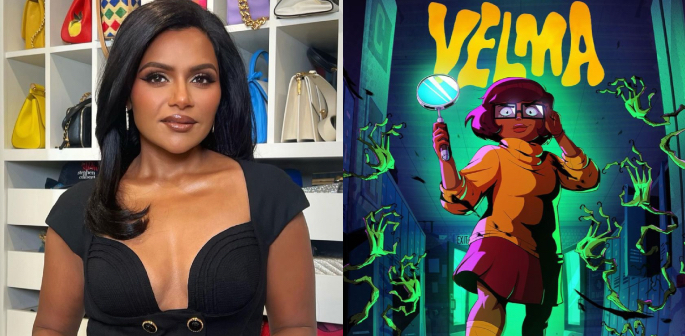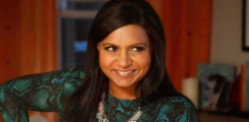“Why do you have to brown-wash an entire show?”
Of all the cancel culture celebrity controversies, the latest focus appears to be on famous actress and writer Mindy Kaling.
Mindy Kaling has received an intense amount of backlash over her portrayal of the beloved Scooby-Doo character Velma Dinkley.
The backlash received has also launched an introspection into problematic aspects of Mindy’s other shows, specifically critiquing her presentation of Indian characters.
Her representation of characters in films and TV shows has had viewers divided on whether they should support the actress’ future endeavours in the acting world.
DESIblitz takes a deeper look into the controversy surrounding Mindy Kaling.
Who is Mindy Kaling?
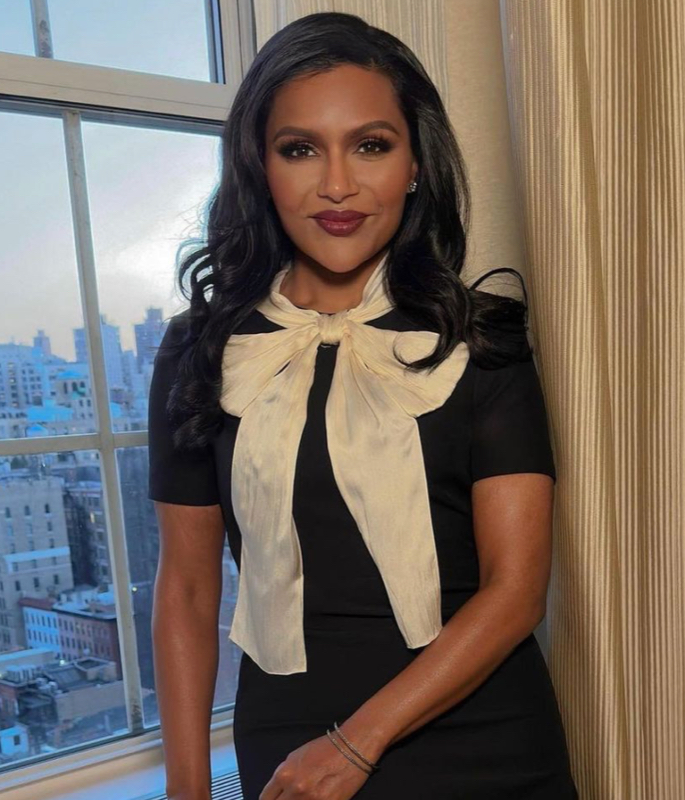 Vera Mindy Chokalingam, known professionally as Mindy Kaling, is an actress, writer, comedian, and business owner.
Vera Mindy Chokalingam, known professionally as Mindy Kaling, is an actress, writer, comedian, and business owner.
She is best known for her writing and acting in the hit American TV series, The Office where her character, Kelly Kapoor was the first symbol of representation for many South Asian women.
Since the office, Mindy has been involved in various projects across Hollywood in TV shows, films, and businesses including The Mindy Project, Never Have I Ever, The Sex Lives of College Girls and Oceans 8.
Her work in the acting world extends not only to writing scripts and acting in films and television but also directing, producing, and voice-over work.
The actress has been surrounded by waves of controversy in recent years with netizens calling to cancel her for her problematic actions in television and film.
Cancel culture also commonly referred to as call-out culture is where individuals are condemned and called out on their least progressive moments and become subjects to extreme ostracism.
The phrase first emerged in the last decade following social and political movements like Black Lives Matter and MeToo which prompted society to look closely at the behaviour of people they look up to.
Many celebrities, writers and individuals in the public eye have become bared the brunt of cancel culture, becoming denounced by netizens on social media and sometimes the press.
Therefore, with a closer public eye on Mindy, individuals have begun condemning her recent television work but also delving deeper into all her past work in the industry and calling out the problematic behaviour.
The ‘Velma’ Series
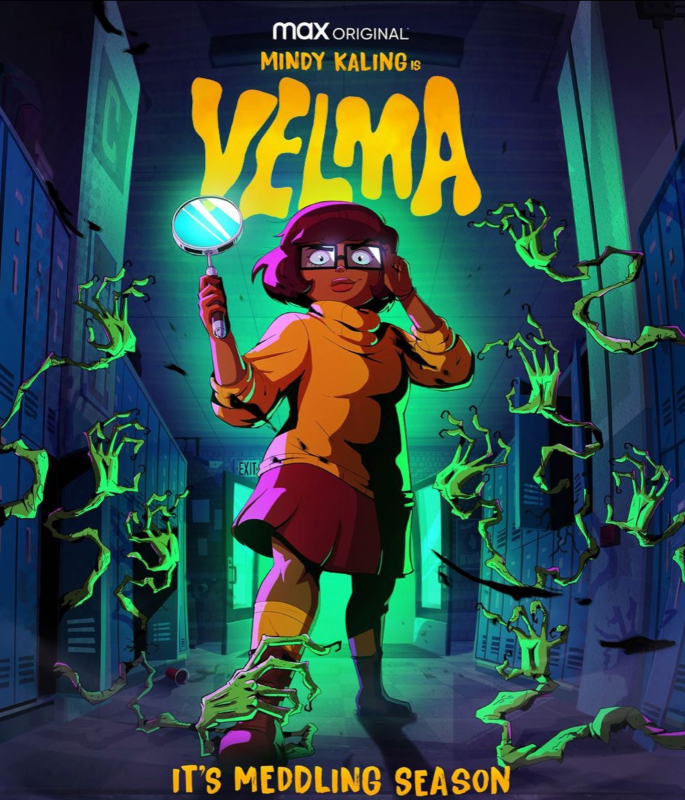 It was announced in February 2021 that HBO Max was in the works to create the animated TV series, Velma.
It was announced in February 2021 that HBO Max was in the works to create the animated TV series, Velma.
The series as alluded to by its name is an animated Scooby-Doo spin-off series based on the Scooby-Doo character, Velma Dinkley.
Fans and followers of the Scooby-Doo franchise may be aware that Velma has been a fixture of the Scooby gang since the introduction of the franchise in 1969.
The Velma character has been known to be the brains of the Scooby-Doo team, with the intelligence to solve any case.
Since the introduction of this character, there have been around 29 voice-over actresses who have been the voice of Velma across different animated versions of Velma.
Mindy Kaling is the latest actress to voice Velma’s character, taking the helm in the new adult animated TV series, Velma.
Though the character has often been considered the nerdy, unglamorous, and brainy character, the new series aims to give the character the recognition she deserves.
However, not everyone is a fan of the series and believes that the recognition simply isn’t there and the series has done more harm than good.
The series has already aired on HBO Max in January 2023 with 10 episodes set to release until the series finale on February 9.
Though the entire series is not yet out, it has already received an unfavourable audience engagement score of 7% on Rotten Tomatoes, clearly highlighting its lack of excitement amongst viewers.
The Backlash against Velma
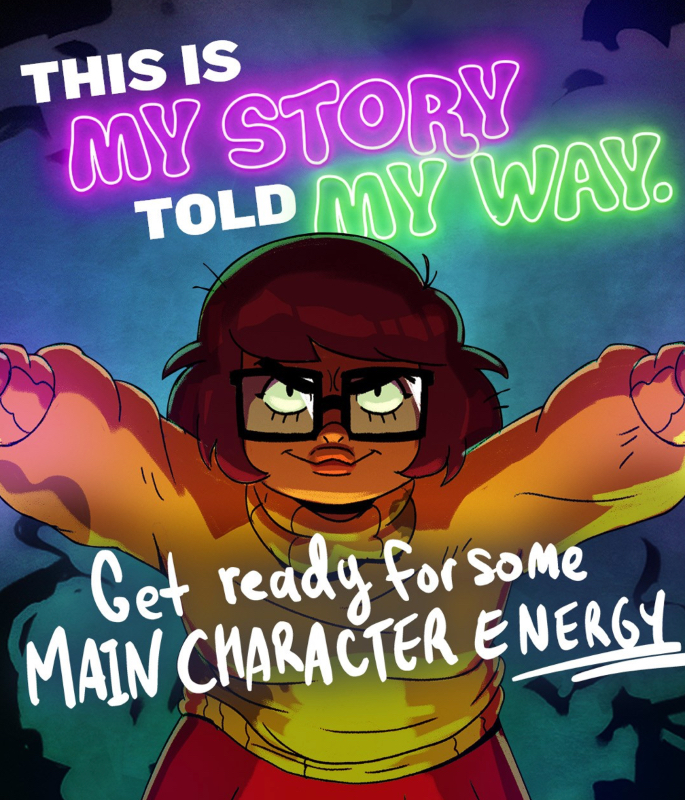 Mindy Kaling’s Velma received negative feedback and a ton of backlash from original fans of the childhood series, Scooby-Doo.
Mindy Kaling’s Velma received negative feedback and a ton of backlash from original fans of the childhood series, Scooby-Doo.
Individuals on Twitter and other social media platforms were outraged at the reimagining of Velma being race-swapped and turned into a South Asian character leading to openly racist complaints against the idea of a South Asian Velma.
Certain remarks included: “Why do you have to brown-wash an entire show?”
In response to the race complaints regarding Velma, Mindy addressed the controversy in a Late-Night Show with Seth Myers interview, saying:
“I just couldn’t understand how people couldn’t imagine a really smart, nerdy girl, with terrible eyesight and who loved to solve mysteries couldn’t be Indian?”
However, South Asians were also upset by the redesign of Velma as even though the character was Indian it was not the representation they wanted to see.
They believe the Indian version of this character is clouded in stereotypes as opposed to accurately depicting them.
South Asian netizens who have seen the series thus far have commented on Twitter saying:
“Velma sucks because it feels like something from a decade ago when brown people were self-deprecating to try and fit in with white people.”
The dorky, nerdy, and insecure depiction of this Velma follows a pattern to Mindy’s other Indian female characters who are uncomfortable with their Indian culture.
Whilst redesigning Velma as South Asian may seem like a positive change, the actual characterisation of her in the new series has conformed to a legacy of degrading Indian women’s appearances.
However, Mindy is neither the writer nor the creator of Velma and whilst a lot of blame has fallen on her for Velma’s representation, she is an executive producer and voice-over actress for the show, so the complete blame for misrepresentation is not all on her.
The Velma series was created by writer, comedian, and producer Charlie Grady whose credits include Saturday Night Live and The Office.
Therefore, to pin all the blame on Mindy for a character she did not create nor write is slightly unfair as many of the backlash-worthy moments like the joke about sickle cell were not written by her despite coming out of her character’s mouth.
Though it was announced in May 2022 that the Velma series would not be for children, viewers were still upset over the crass jokes and sexualization of teenagers shown in the cartoon series.
Creation of Indian Protagonists
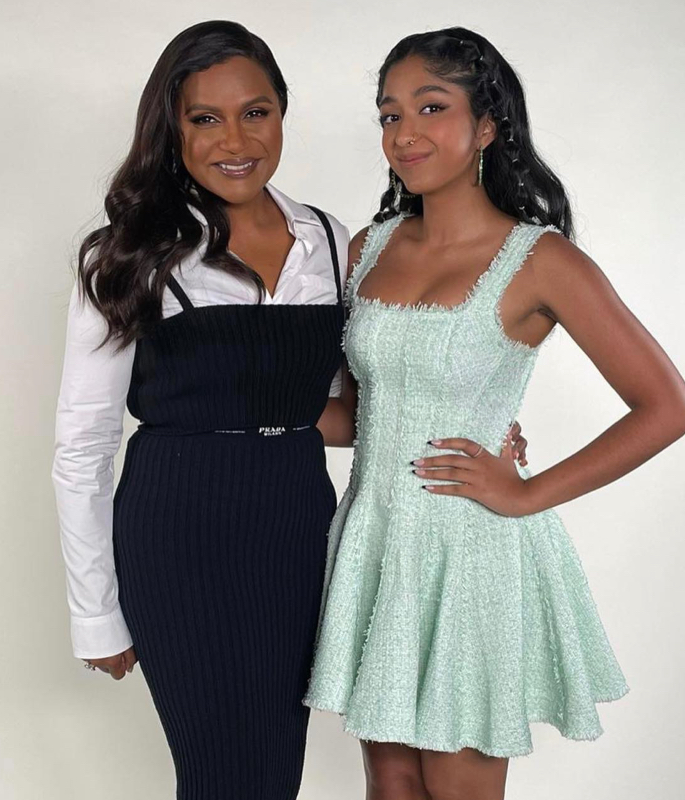 Following the intense backlash of Velma, netizens and TV enthusiasts have picked upon additional issues regarding Mindy’s portrayal of Indian protagonists across her work.
Following the intense backlash of Velma, netizens and TV enthusiasts have picked upon additional issues regarding Mindy’s portrayal of Indian protagonists across her work.
Though individuals were initially enchanted by Mindy Kaling as an early embodiment of South Asian representation, following her first appearance on screen as Kelly Kapoor in The Office, it appears this enchantment has slowly faded.
Critiques and even old fans of Mindy had noticed that her Indian protagonists all follow similar patterns of characterisation and took to social media to share their views.
Individuals picked up on Mindy’s misrepresentation of Indian female characters as dorky, insecure, and self-obsessed much like the Velma character she voiced in the series.
Examples of Indian protagonists in Mindy Kaling’s shows include Devi Vishwakumar in Never Have I Ever, Bela Malhotra in The Sex Lives of College Girls and Mindy in The Mindy Project.
Twitter users took to sharing their opinions of the representation that Mindy fails to bring to them as South Asians, commenting:
“Can we talk about how Mindy Kaling’s ‘representation’ of brown girls really just feeds the stereotypes more, always the nerdy, boring, desperate girl falling for a white boy and everyone’s so shook when he starts showing interest?”
Netizens were brutal in their comments, going as far as attacking Mindy as a person, saying:
“Mindy Kaling is the worst thing to happen to Indians since the British.”
All three female, Indian protagonists are constantly committing acts to validate themselves to a white man throughout their respective shows all created by Mindy.
This brings the question to the table of what kind of South Asian representation is she delivering.
Whilst there is no denying that Mindy Kaling has been pertinent in bringing South Asian actors and actresses to the forefront of television, her characterisation of Indian characters may do more harm than good for some individuals.
However, it’s pertinent to note that representation can’t fall on the shoulders of one singular individual.
Whilst Mindy holds a prominent position in the film and TV industry this does not mean the burden all falls on her to represent every South Asian.
Representation is not linear and therefore Mindy’s is only one of many South Asian voices to represent individuals and not the only one.




















































